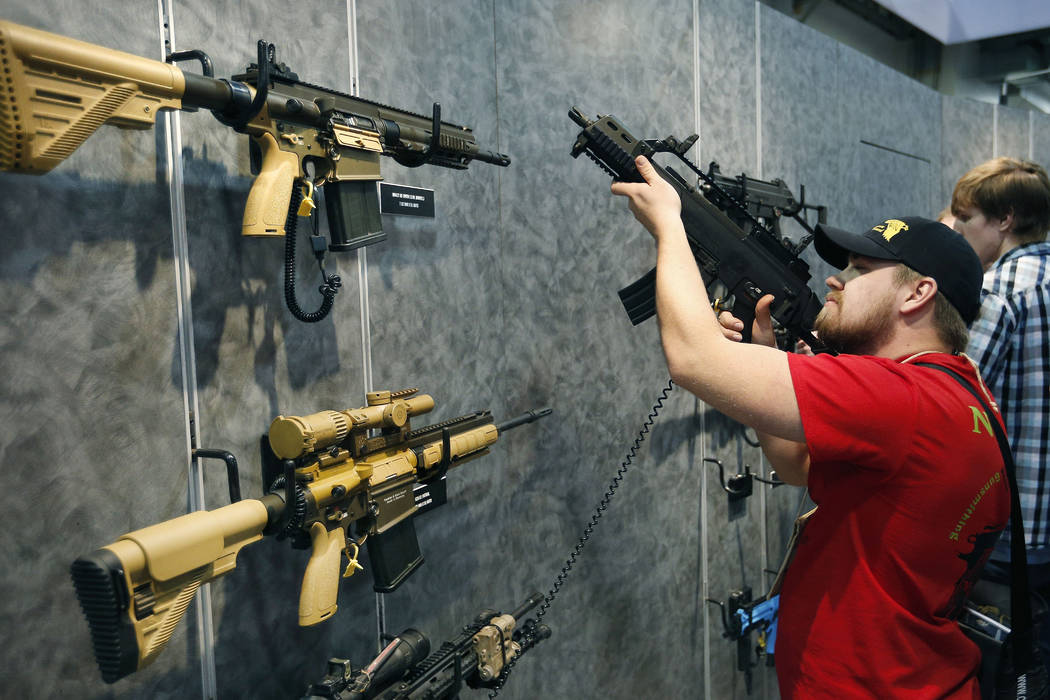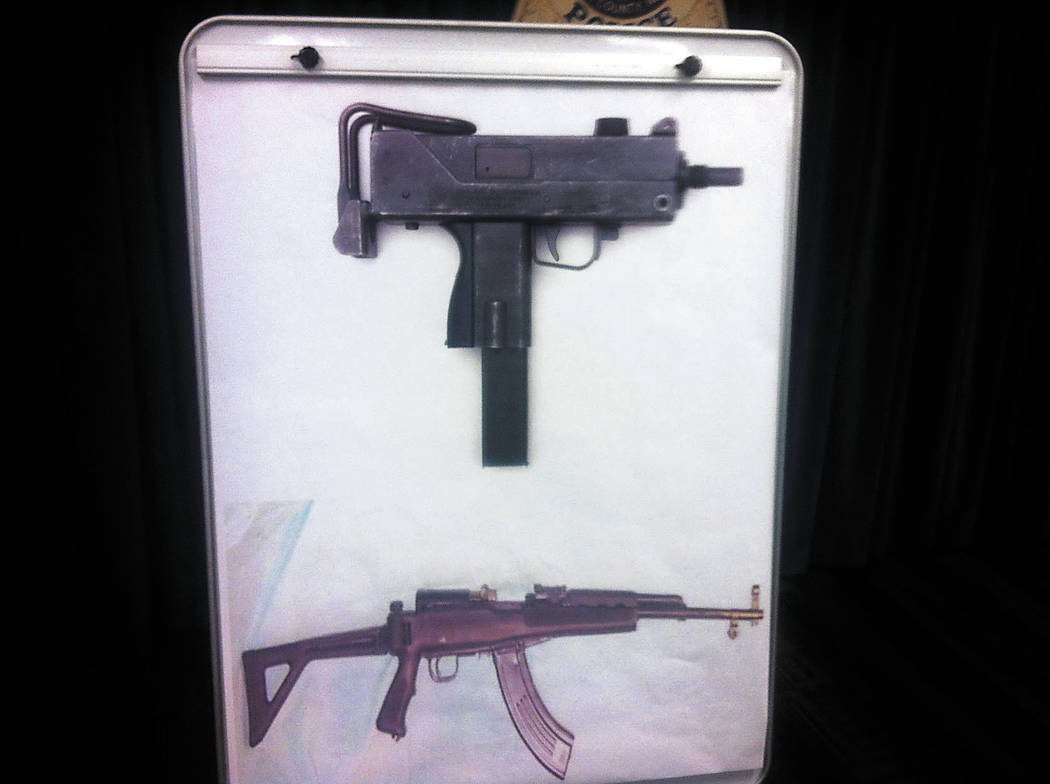STEVE SEBELIUS: Understand the choice in the gun-control debate
Thirty-six dead, 71 injured.
That’s the tally from just a few recent shootings in Gilroy, California; El Paso, Texas; Philadelphia; Dayton, Ohio; and Riverside, California.
Among the dead: A 6-year-old boy and a three-year veteran of the California Highway Patrol.
The tragedies are tied together by a single, common thread: The use of a military style, semi-automatic rifle.
And these are but the latest names and numbers to be added to the sad statistics. The Centers for Disease Control reports 39,773 people died in total in 2017 because of firearms, including suicides.
As the bodies pile up, the question recurs: Now will we do something about the problem of gun violence?
The prospects appear slim, although even Senate Majority Leader Mitch McConnell indicated he’d be open to a bipartisan bill on background checks for all gun sales, including those between private parties. That’s not only common sense (more than 3 million gun sales have been stopped because of existing background checks since 1993, The New York Times reports), it’s also quite literally the least we can do.
There’s more.
Many lawmakers, including some from Nevada, have called for an outright ban on military-style, semi-automatic weapons. We had such a ban for a decade in America, although gunmakers easily got around its requirements.
Today, that idea might be more difficult, given the Supreme Court’s 2008 holding in District of Columbia v. Heller, a 5-4 ruling that found an individual right to keep and bear arms for traditionally lawful purposes, unconnected to militia service. A 2010 decision, McDonald v. Chicago, found that states must observe that right as well.
There are other ideas, too. Banning high-capacity magazines (on the theory that gunmen will be able to kill fewer people if they have to stop to reload more often). Banning “bump stocks” or other devices that allow semi-automatic weapons to be fired at a faster rate. (Fully automatic weapons are already banned, unless you have a federal firearms license). “Red-flag” laws that allow authorities to confiscate weapons from a person deemed dangerous, if a judge agrees.
We should probably also add a ban on armor-piercing ammunition of the kind used by the Oct. 1 shooter here in Las Vegas. And maybe stricter regulation of body armor for people who are not in the law-enforcement or security professions, to avoid a repeat of the infamous 1997 North Hollywood bank robbery shootout.
Nevada has already taken some of these steps: This year, the Legislature approved universal background checks, a ban on bump stocks and a red-flag law.
But whether you are pro-gun or anti-gun, whether you want to ban all firearms or collect them as a hobby, it’s important to understand one hard, undeniable truth about this debate. And that is this:
If we do nothing, if we leave the law as it is, if “thoughts and prayers” are the only response to the increasingly common mass slayings wrought with semi-automatic rifles, then we as a country are accepting a body count as the price of our inaction.
If we do nothing, we are unquestionably acknowledging that the murders of innocent people — of children and of police officers — is simply part of the price of our Second Amendment freedoms.
If we do nothing, we are accepting that no space in America is a place beyond the reach of violence.
If we continue as we have, we admit that fear of being shot to death at any time, in any place, by any one of the millions of weapons already in circulation, is a permanent part of American life.
Some will object: You can say the same about cars, or hammers or knives! They are all used to kill, intentionally and unintentionally, every day.
The differences are obvious, however: Cars crash generally because somebody made a mistake or did something stupid. When hammers are used to commit murder, they are being adapted to a use for which they were not intended. Knives have myriad applications that don’t involve bloodshed, too.
But guns are different. They were invented, refined and perfected for one purpose: To allow one person to kill another, or many others, as efficiently and swiftly as possible. When guns are used in killings, they are not being abused. They are being put to the precise use for which they were intended.
In the right hands, guns have protected this nation from attack and invasion and defended democracy from tyranny and individuals from personal harm. In the wrong hands, they transform everyday American spaces into killing fields.
We have it within our power to reduce the death toll. If we do not, we are admitting that the price of our freedoms will be paid in the blood of the innocent.
Some may be willing to pay that price. Will the majority? We may yet find out. But let’s not fool ourselves about the choice we’re making.
Contact Steve Sebelius at SSebelius@reviewjournal.com or 702-383-0253. Follow @SteveSebelius on Twitter.









